The actual trading of currency pairs is what many aspire to do in forex. However, this market offers other interesting and fulfilling careers. After all, forex needs brokers, researchers, software developers, marketers and professionals to keep it ticking along!
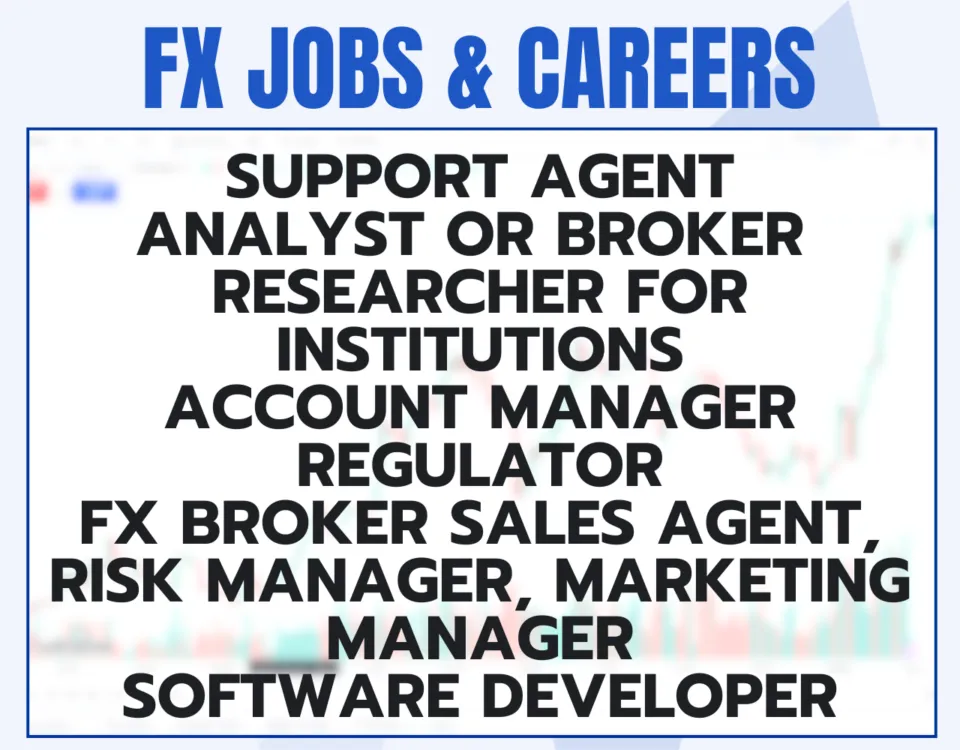
Key Facts Forex Careers
- The forex market provides various exciting yet challenging careers, such as support agents, analysts, software developers and marketers
- People in these careers usually have to be formally qualified. However, they also need to understand the dynamics of the forex market and have traits like analytical and communication skills
- How much you can earn varies widely by role, experience, and location – brokers and senior roles offer the highest earning potential
- Independent forex trading is still another option. Despite the risks involved, it provides unlimited potential and greater flexibility than a full-time career
(Never Trade In Uncertainty Again – Join The WR Trading Mentorship)
List of the Top 10 Forex Careers
Below is a list of the 10 careers to explore in the forex market.
1. Forex Support Agent
A forex broker employs a support agent to help clients with their trading issues. These professionals are the first point of contact for traders and play a massive role in providing them with a smooth user experience.
Support agents commonly assist with opening accounts, verifying identities, and answering depositing/withdrawal questions.
However, they will deal with slightly more technical support by troubleshooting various issues with their broker’s trading or charting platform. Agents may need to escalate complex issues to a more capable department where necessary.
2. Forex Analyst
A forex analyst is a private trader or an employed qualified professional who offers insights and forecasts in the forex market. They should provide information on market trends to allow investors or traders to make informed decisions and identify trading opportunities.
The core of being an analyst is to research and determine the prices of forex markets consistently. Technical, fundamental and sentiment analysis are the key focus areas in this regard.
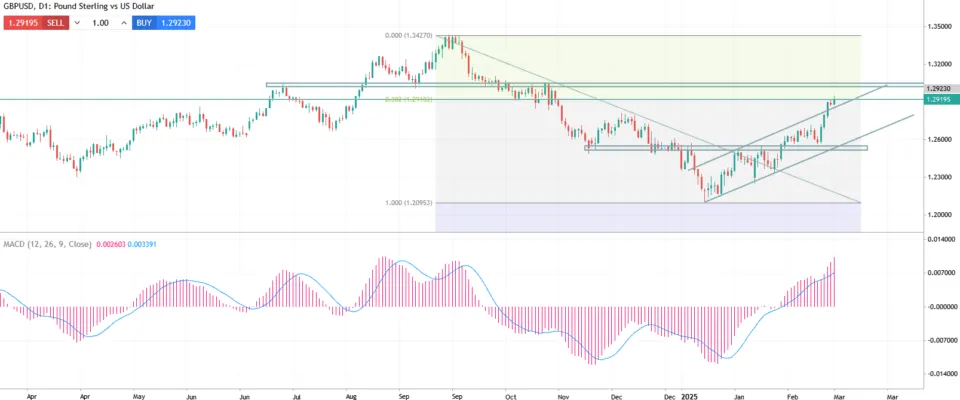
In the context of private traders, forex analysts may provide trade set-ups or signals to an exclusive group (although they usually must be licensed). Meanwhile, analysts employed by brokers are often tasked with producing educational content through blogs, webinars, seminars, trading sessions, and daily or weekly market commentary.
3. Forex Researcher For Institutions
We can really think of the forex researcher as the more advanced forex analyst strictly for institutions. The latter includes banks, hedge funds, investment companies, and multinational corporations. Researchers help enhance profitability for institutional trading desks, support portfolio managers and mitigate currency fluctuation risks.
Besides technical and fundamental analysis, researchers should also provide quantitative analysis (e.g., statistical models or algorithms). This is why researchers will be masters of advanced data analysis tools like MATLAB and Excel.
Furthermore, they would use state-of-the-art software products like Bloomberg Terminal and Refinitiv Eikon for real-time market data. These are key for offering detailed reports and presentations to institutional clients.
4. Forex Broker
A forex broker is a company that offers traders a platform to trade currencies, acting as a middleman between them and the interbank forex market or forex liquidity providers. However, a broker may be their ‘market maker’ where trades are routed through their internal trading desk.
Starting and running a brokerage is among the toughest and most financially demanding careers. One way to reduce the monetary burden is to have a ‘white label service,’ which, in simple terms, is branding your own broker using another broker’s resources.
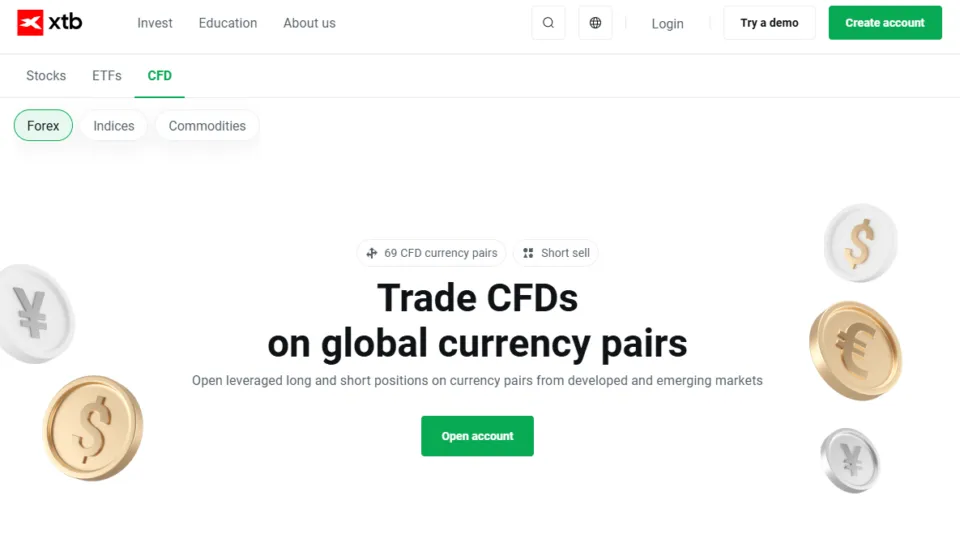
Regardless, one integral part of a broker’s job is having a capable trading platform that offers real-time, seamless execution of countless forex pairs. Brokers also must manage the risks associated with handling each trade – one way is constantly matching their trades with those of other clients or hedging with their own trading accounts.
A forex broker must also maintain sufficient funds to pay out withdrawals and accept deposits using multiple gateways. Finally, it must be regulated to operate in each of the countries in which it is available.
5. Forex Account Manager
A forex account manager is someone who manages the trading account/s of their client/s. It is usually in the setting of a trader who is part of a broker’s account management system (e.g., PAMM or MAM accounts) using pooled funds from their clients. In some cases (albeit risky and unregulated), an account manager may present their services as independent traders or companies.
Nonetheless, a forex account manager is responsible for executing and managing trades, implementing risk management, analysing the markets and reporting on performance.
(Never Trade In Uncertainty Again – Join The WR Trading Mentorship)
6. Regulator For Forex Industry
A forex regulator is an organisation that ensures integrity, transparency, and fairness in forex. They are essentially the authority, ensuring that forex brokers follow the rules and guidelines they enforce. These are designed to protect the forex market from malpractice.
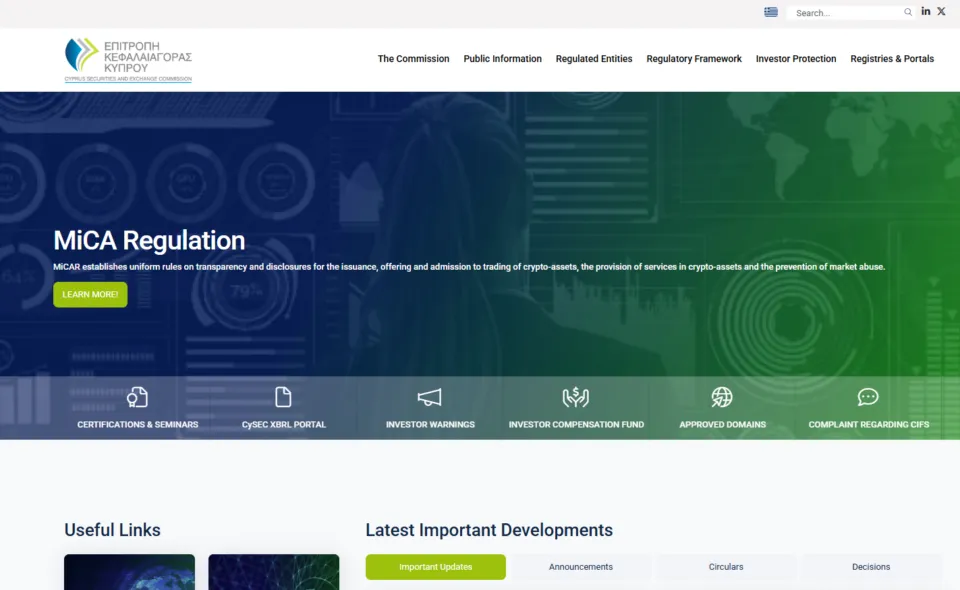
One key role of a forex regulator is providing licenses that brokers should own to be legally allowed to operate in a certain region. They must also consistently supervise these brokers to comply with their regulations.
Regulators usually have various consumer protection mechanisms, such as compensation schemes and ensuring brokers use segregated accounts. Forex regulators will be law enforcers, imposing penalties, suspending licenses, or even shutting down brokers where necessary. On the lighter side, regulators should also be prepared to mediate between traders and brokers.
Popular forex regulators include the FCA (United Kingdom), CySEC (Cyprus), FSCA (South Africa), and CFTC (United States), among others.
7. Forex Broker Sales Agent
A forex broker sales agent who works for a forex broker to attract and retain clients. They are responsible for marketing their services, onboarding new clients and supporting the same clients on their trading journey. As with any sales agent, you must be prepared to acquire new clients in many ways, from cold calling to social media.
Still, agents shouldn’t be solely sales-driven. As they acquire new traders, they must maintain their relationships with them through ongoing personalized support. It also helps tremendously if the agent is a trader themselves, allowing them to educate their clients on trading.
While juggling the relationship management side,sales agents should always prioritise sales targets and upsell their existing clients.
8. Forex Broker Risk Manager / Risk Department
The average person would only consider the actual trading aspect risky. However, the brokers responsible for providing this market have risks of their own – this is where a risk manager comes in.
Think of fraud, reputation, technological glitches, market volatility, and counterparty execution; these are just a few risks of running a forex brokerage. The risk manager is responsible for ensuring that the company manages these risks while remaining compliant and profitable.
The risk manager is focused on monitoring market exposure, analysing client behaviour, determining risk limits, and managing crises. They are the ‘generals’ of a forex broker’s risk department. When combined, the risk department prevents financial losses and ensures profitable growth for the broker or company.
9. Forex Software Developer
Software development is a large part of the forex market, and software developers are integral to this process. They design and maintain the various software systems necessary for the market.
These include charting/trading platforms, algos, and market data feeds. Let’s not forget APIs (Application Programming Interfaces), which connect brokers, financial institutions and third-party tools.
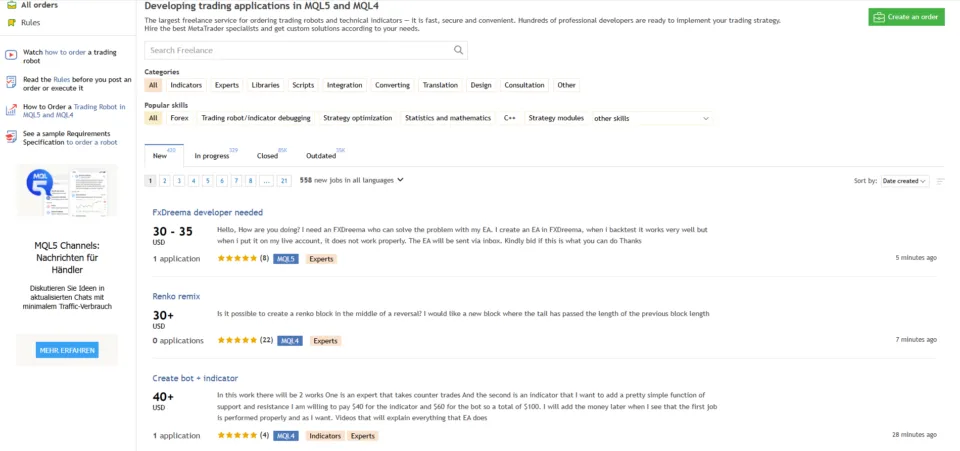
Software developers also ensure the broker has a well-oiled back and front end, resulting in a smooth user experience and operational efficiency. Finally, they can troubleshoot and resolve any sudden technical issues.
10. Forex Broker Marketing Manager
A marketing manager in a forex broker develops and executes marketing strategies to attract and retain traders. They focus on growing the brokerage’s client base, building brand awareness, and ensuring long-term customer loyalty.
It begins with effective marketing planning and campaigns to align with business objectives, acquire and retain clients and set the broker apart from competitors. A large part of being a marketer nowadays is being adept with digital marketing (display ads, social media, search engine optimization, etc.) and content marketing material (blogs, videos, etc).
Marketers create promotional offers, such as referral programs and bonuses, to attract new clients. Meanwhile, they should be one step ahead of retaining existing traders by offering loyalty programs and exclusive products.
Other aspects of being a marketing manager include brand development, analytics and reporting, affiliate management, and thought leadership.
(Never Trade In Uncertainty Again – Join The WR Trading Mentorship)
What Is Required For A Job in The Forex Market?
It, of course, depends on the role. Here are some general requirements:
- Understanding of the forex market: Even if you aren’t an actual trader, you must understand how forex works and what keeps it thriving.
- Familiarity with trading platforms: As with the last point, any forex professional can benefit from being well-versed in trading software (MetaTrader 4/5, TradingView, and so on). Unsurprisingly, more technical roles will require greater knowledge of other platforms.
- Educational background: Depending on the role, professionals are usually required to have a finance, business, mathematics, or economics qualification (often a degree).
- Problem-solving and analytical skills: Whether working with charts, financial indicators, or economic data, any forex career requires considerable problem-solving, analysis, and decision-making.
- Communication skills: Forex is naturally a complex activity to navigate. Any professional should communicate what they do to help a broker or traders in the simplest way possible.
The educational requirements will vary from country to country, and some may need extra certifications. For example, the United States has its Series 3, Series 7, Series 34, and Series 63 exams and licenses for various activities in the forex industry.
Do You Need to Be Regulated To Work In Forex?
Most roles (such as marketing, sales, analyst, and software development) don’t require regulation. However, those that handle client funds, such as forex brokerages, account managers, and prop firms, will need the latter.
How Much Can You Earn With A Forex Career?
Most forex careers (like analysts, researchers, account managers and sales agents) can modestly earn you at least $15,000 yearly. Needless to say, we should consider other factors for the careers below like:
- Experience: The more experienced you are, the more you can command to earn.
- Employer prestige: She salary you would get from a financial institution like a bank with 50+ years of existence and a relatively new broker would be quite different.
- Region: The more developed your country, the more you can earn.
- Responsibilities: Some jobs have entry, mid and senior levels, which affects earning potential.
When we think of brokers, the potential is quite vast since they are a business – many brokers can usually be in the multi-six figure dollar range yearly. For instance, according to The Sunday Times, the Plus500 (founded in 2008) made £183.7 million in pre-tax profit for the first half of 2024.
Forex Trader vs Job in Forex – What Is Better?
One isn’t necessarily better than another – it’s subjective. Let’s compare the two.
| Feature | Pros | Cons | Best if: |
|---|---|---|---|
| Forex trader | Flexibility, Unlimited earning potential, Independence, Scalability | High risk, No guaranteed income, Sufficient capital required, Self-discipline needed | You have a strong risk tolerance, You’re passionate about trading, You prefer flexibility over stability |
| Job | Stable income, Employee benefits, Less risk, Networking, Career progression, Skill development | Limited earnings, Low flexibility, Dependence on employer’s success, Repetitive tasks | You prefer stable consistent income, You’re looking for employee benefits, You’re focused on career advancement |
Luckily, working full-time in forex and being an independent trader is possible. While challenging, this offers you two income streams – thus increasing your earning capability.
WR Trading specialises in helping you become the smartest and most profitable forex trader. High-risk-to-reward strategies, solid trading plans, and knowing when to be in the market are the keys to success – all while committing the least time possible.
We offer courses aligned with practical applications, personalized coaching, and comprehensive information, turning anyone into a profitable trader.
Conclusion
A career in the Forex market is not as difficult as many people think. It is also possible to enter the market from a different direction. If you have experience in Forex Trading, knowledge of brokers and various trading platforms, these are definitely good prerequisites for applying to the broker of your choice.
The regulations that come with a Forex career are set and commissioned by the employer. When deciding to start a career in the Forex market, it is first sensible to consider whether you want to become a self-employed trader or work for a broker.
(Never Trade In Uncertainty Again – Join The WR Trading Mentorship)
Frequently Asked Questions on Forex Careers
How much can I earn in a Forex Career?
There are a few aspects that come into play. Firstly, the employer, experience, region and responsibility determine the salary. However, a minimum of 15,000 USD per year is expected.
Do I need an Regulation for a Forex Career?
Yes. Most roles (such as marketing, sales, analyst, and software development) don’t require regulation. However, those that handle client funds, such as forex brokerages, account managers, and prop firms, will need the latter.
Which is the best Forex Career?
Usually, the highest position you can reach in a Forex career is the Forex Broker Risk Manager / Risk Department, which means a high salary and, among other things, a lot of responsibilities and regulations.
What do I need for a Forex Career?
You need to understand the Forex market and be familiar with some trading platforms. Of course, you also need to know your broker’s working concept.


